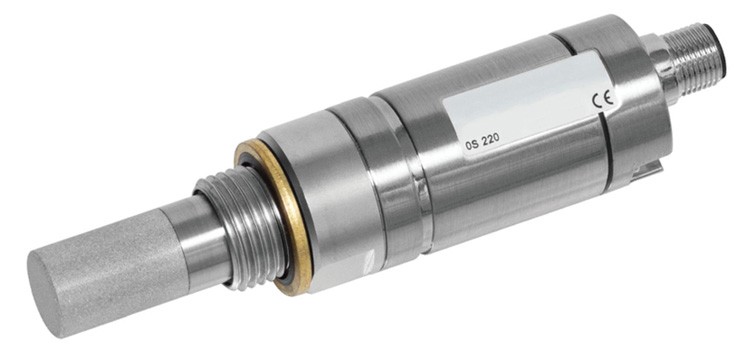Understanding Dew Point and Its Impact on Compressed Air Filtration
In compressed air systems, dew point plays a critical role in maintaining the quality and efficiency of operations. While many focus on pressure and temperature, dew point is equally essential, particularly when it comes to compressed air filtration. This article will cover the basics of dew point, its significance, and how it affects filtration in compressed air systems.
What is Dew Point?
The dew point is the temperature at which air becomes fully saturated with water vapor, causing condensation to occur. In other words, it is the point where air can no longer hold water in a gaseous state, and droplets begin to form. In compressed air systems, the dew point is critical because it determines how much moisture the air holds and at what temperature that moisture will begin to condense.
In industrial settings, this becomes a major concern, as water vapor can affect the efficiency of equipment, cause corrosion, and lead to system failures. The lower the dew point, the less moisture is present in the air, reducing the risk of water damage and contamination.
Why is Dew Point Important in Compressed Air Systems?
Maintaining the correct dew point in a compressed air system is crucial for several reasons.
1. Prevention of Moisture Accumulation
When compressed air cools down, it loses its ability to hold moisture. If the air’s dew point is higher than the system’s operating temperature, moisture will condense within the air pipelines. This moisture can lead to rust and corrosion of equipment, especially if the system is not equipped with adequate filtration and drying mechanisms.
2. Equipment Longevity
Moisture is a major cause of equipment degradation in compressed air systems. It can lead to corrosion, clogging, and general wear and tear, significantly reducing the lifespan of machines and tools. By maintaining a low dew point, we can minimize the presence of moisture, thereby extending the life of compressors, filters, and other components.
3. Product Quality and Safety
In industries where compressed air is used in direct contact with the product, such as food and beverage or pharmaceuticals, maintaining an appropriate dew point is vital. Contaminants like moisture or oils can spoil products or compromise safety standards. Proper air filtration ensures that the compressed air used is clean and dry, adhering to industry requirements.
How Does Dew Point Affect Compressed Air Filtration?
The effectiveness of a compressed air filtration system largely depends on controlling the dew point. Let’s explore how dew point interacts with different filtration components:
1. Moisture Removal
Compressed air filters are often equipped with moisture separators to trap water vapor. However, if the dew point is not properly managed, water can bypass these filters as it condenses inside the system, leading to water buildup. Water vapor in the air can also result in the formation of ice in low-temperature environments, blocking filters and hindering system performance.
2. Oil and Particulate Contaminants
Many filtration systems are designed to remove oil mist and solid particles. However, the presence of water vapor can reduce the filter’s capacity to trap contaminants. As moisture mixes with oils or dust, it forms a sludge-like substance that can clog filters or pass through them, reducing overall air quality. A lower dew point minimizes this risk, helping filters operate more efficiently.
3. Impact on Dryers and Adsorption Filters
To achieve a low dew point, air dryers are essential components in compressed air systems. There are two main types: refrigerant dryers and desiccant dryers.
- Refrigerant dryers cool the air to condense and remove water vapor, but their performance is limited to higher dew points.
- Desiccant dryers absorb moisture, allowing systems to reach much lower dew points, sometimes as low as -40°C.
Using these dryers in conjunction with proper filtration ensures that moisture is adequately removed, even at extremely low dew points.
4. Filter Efficiency and Maintenance
Higher moisture levels increase the need for frequent filter replacement and maintenance. Filters clogged with water and contaminants lose their effectiveness, leading to pressure drops in the system. Maintaining a low dew point reduces the strain on filters, prolonging their lifespan and improving air quality. This leads to less frequent downtime and lower operational costs.
Achieving an Optimal Dew Point for Compressed Air Filtration
1. Monitoring and Control Systems
Accurate dew point measurement is essential for effective compressed air system management. Advanced dew point sensors and controllers can help monitor and adjust the air’s moisture content in real time, ensuring that the air stays dry and preventing potential issues before they arise.
2. Air Dryers and Aftercoolers
To maintain a low dew point, air dryers are a must-have in compressed air systems. These dryers work alongside aftercoolers to reduce the temperature of compressed air, condensing out water vapor. Installing the correct dryer for your specific needs (refrigerant or desiccant) ensures that your system operates with minimal moisture, helping to prevent contamination and system failures.
3. Regular Maintenance
Routine maintenance of filters, dryers, and moisture separators is crucial to maintain an optimal dew point. Over time, filters become clogged with particles, and dryers can lose efficiency. Regular checks and replacements of these components will help ensure your system remains dry and free from contaminants.
The Long-Term Benefits of Managing Dew Point in Compressed Air Systems
By maintaining a low dew point and ensuring efficient filtration, compressed air systems can experience several long-term benefits, including:
- Reduced System Downtime: Dry air prevents clogging and corrosion, resulting in fewer system breakdowns and reduced maintenance time.
- Lower Energy Costs: Efficient filtration and moisture control reduce the strain on compressors and other equipment, optimizing energy usage.
- Improved Product Quality: Clean, dry air ensures that products, especially in sensitive industries, remain uncontaminated.
- Increased Equipment Lifespan: Moisture-free systems experience less wear and tear, extending the life of components and reducing the need for costly replacements.
Conclusion
Understanding the relationship between dew point and compressed air filtration is essential for maintaining system efficiency, reducing costs, and ensuring product quality. By implementing the right filtration systems, air dryers, and monitoring tools, we can effectively manage dew point levels, protecting equipment and enhancing overall performance.



25 Years Of Experience
With Quality At It’s Best!
Quick Links
Get In Touch
- Email: pure@purefiltration.net
- Phone: (+202) 38244517
- Mobile : 01007570066
© All Rights Reserved To Pure Filtration
